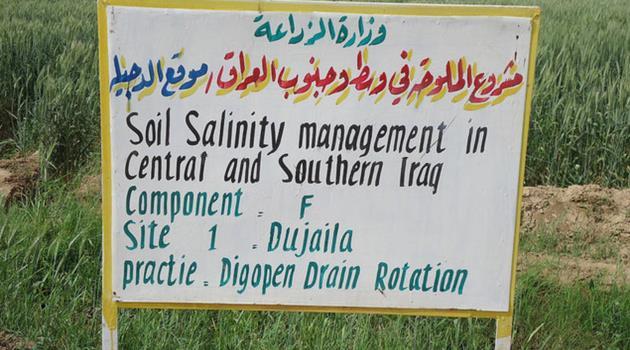
Wheat Farms Efficiency in Saline Irrigated Areas of Iraq
(MENAFN- Iraq Business News) By John Lee.
The study Technical and Environmental Efficiency of Wheat Farms in Saline Irrigated Areas of Central Iraq investigates the impact of soil salinity on technical efficiency (TE) and environmental efficiency (EE) in wheat production in central Iraq, where 360 farmers interviewed in winter season 2015-2016.
In developing countries, even though irrigated agricultural land covers only 20% of all arable land, it accounts for 47% and 60% of all crop and cereal production respectively. In total, 11% of irrigated area is affected by salinity (Pakistan, China, United States, and India present more than 60% of this percentage).
The removal of salts from the soil through leaching and drainage increases the salinity of drainage water, which then might be up to 50 times more concentrated than irrigation water, in which surface water supplies 62% of the irrigated area. Irrigated area disposal can raise the salinity of receiving water bodies to levels that make them no longer usable.
The Iraq Salinity Initiative, funded by the Australian Centre for International Research (ACIAR), AusAID and the Italian Government was designed in 2010 for the Government of Iraq and for the Iraq farmers by a group of international agencies led by ICARDA to solve the problems of Iraq's salty soils and salty irrigation water.
More here.
(Source: ICARDA)

Legal Disclaimer:
MENAFN provides the
information “as is” without warranty of any kind. We do not accept
any responsibility or liability for the accuracy, content, images,
videos, licenses, completeness, legality, or reliability of the information
contained in this article. If you have any complaints or copyright
issues related to this article, kindly contact the provider above.


















Comments
No comment